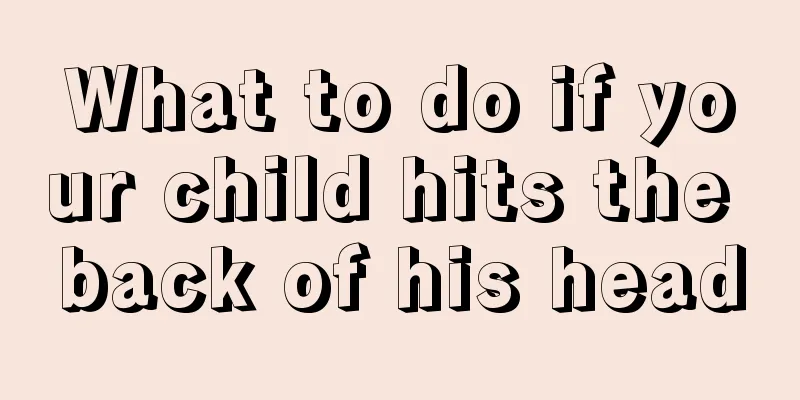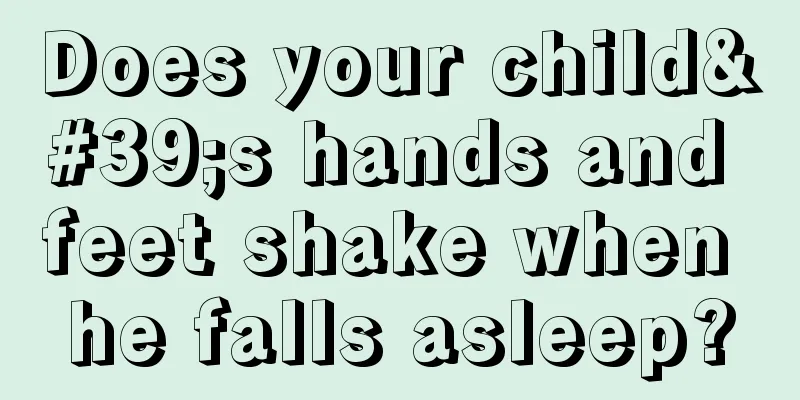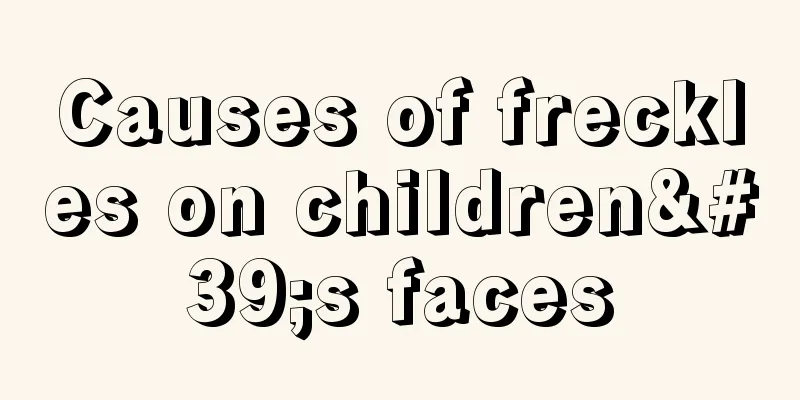What to do if your five-month-old baby sneezes and has a runny nose

|
Nowadays, every child is the treasure of the family, and every parent is most concerned about their child’s physical health. Recently, many parents have reported that their five-month-old babies are coughing and having runny noses. Many parents do not understand what is going on and are very worried. So today, we will introduce to you what causes a five-month-old baby to cough and have a runny nose. Let’s take a look together below. It is common for children to catch 5 to 6 colds a year. Typical symptoms of a cold include: runny nose, blocked nose, cough, sore throat, tiredness, loss of appetite, and fever. When babies under one year old catch a cold, they often experience fever (body temperature over 38°C), cough, red eyes, sore throat, and runny nose. Babies with a cold often have a decreased appetite. Babies under 6 months old often have difficulty feeding and breathing because they cannot breathe with a completely blocked nose. Duration of the cold Generally, a cold will last for 7 to 10 days, and in babies it may last for about 2 weeks. The cough is often the last symptom to go away and it often lasts for several weeks. Young children who often play with older children usually catch 6 to 10 colds a year; they may even have a runny nose all winter. When to see a doctor For older babies, you should take them to the hospital immediately if any of the following occurs: The cold lasts for more than 5 days; the body temperature exceeds 39°C; the baby has ear pain; difficulty breathing; persistent cough; and constant yellow-green, sticky nasal discharge. Caring for a baby with a cold 1. Get enough rest For colds, good rest is crucial. Try to let your child sleep more, reduce outdoor activities appropriately, and don't let your baby get tired. 2. Take good care of your baby’s diet Let your baby drink more water. Sufficient water can make the nasal secretions thinner and easier to clean. Let your baby eat more fruits and juices rich in vitamin C. It is said that chicken soup can relieve the symptoms of colds, so you might as well make some chicken soup for your baby to drink. Try to limit your intake of dairy products, which can increase mucus production. For babies with decreased appetite, mothers should prepare some easily digestible foods that are good in color, aroma and taste. 3. Let your baby sleep more comfortably If your baby has a blocked nose, you can put one or two towels under the child's mattress and slightly elevate the head to relieve the blocked nose. Never let babies under two years old sleep directly on pillows or place pillows under mattresses, as this can easily cause suffocation or damage the cervical spine. 4. Help your baby blow his nose The baby is still too young to blow his nose by himself. The best way to help the baby breathe smoothly is to help the baby blow his nose. You can apply a little Vaseline oil in the baby's external nostrils, which can often relieve nasal congestion; if the mucus is thick, you can try using a nasal aspirator or twisting medical cotton balls into small sticks to remove the mucus in the nose; if the nasal congestion has caused difficulty in feeding, you can use saline nasal drops 15 minutes before feeding. After a while, use a nasal aspirator to suck out the saline and mucus in the nasal cavity, and the baby's nose will be unobstructed. The above are the reasons why five-month-old babies cough and have a runny nose, as introduced to us by professionals. So if parents have children with this situation, they can refer to the content introduced above, which will help us solve the problem for the children in a timely manner. Pay attention to your baby's physical condition at ordinary times. If he is sick, he needs timely treatment and don't delay. |
<<: What should I do if my baby doesn't like to eat recently?
>>: Causes and treatment suggestions for yellow urine in four-month-old babies
Recommend
What medicine should the baby take if he has a fever?
For babies, the daily diet is very monotonous bec...
What to do if your child has a fever and sweats
The normal body temperature of a child does not e...
10 dangerous ways of spoiling your child: how many of them do you have?
1. Special treatment The child has a superior sta...
Eight-month-old girl allergic to leprosy vaccine
Leprosy is a common skin disease in people's ...
How to treat children's teeth grinding?
Teeth grinding is a common symptom in children wh...
7 Wrong Words and Actions of Parents Affect Your Baby's Life
Bad Habit 1 You are busy and stressed at work. Wh...
Why does my 21-month-old baby not like to eat?
We all know that only a normal diet can provide t...
What to do if your baby has a runny nose
For younger children, mothers must provide specia...
How to treat heat stroke
Symptoms of heat stroke are a common disease in s...
Memory training games for kids
Nowadays, almost every family has only one child,...
What are the hidden dangers of children's shoes? How to choose them safely?
As the saying goes, "Although the sparrow is...
What are the treatment methods for myopia in children?
The probability of children suffering from myopia...
My baby farts a lot without pooping for a day
Many mothers will be particularly careful when fe...
What are the symptoms of calcium deficiency in five-month-old babies?
Babies may have various problems during their gro...
What should I do if a child’s tooth is broken?
Children may be naughty in their daily lives. If ...









